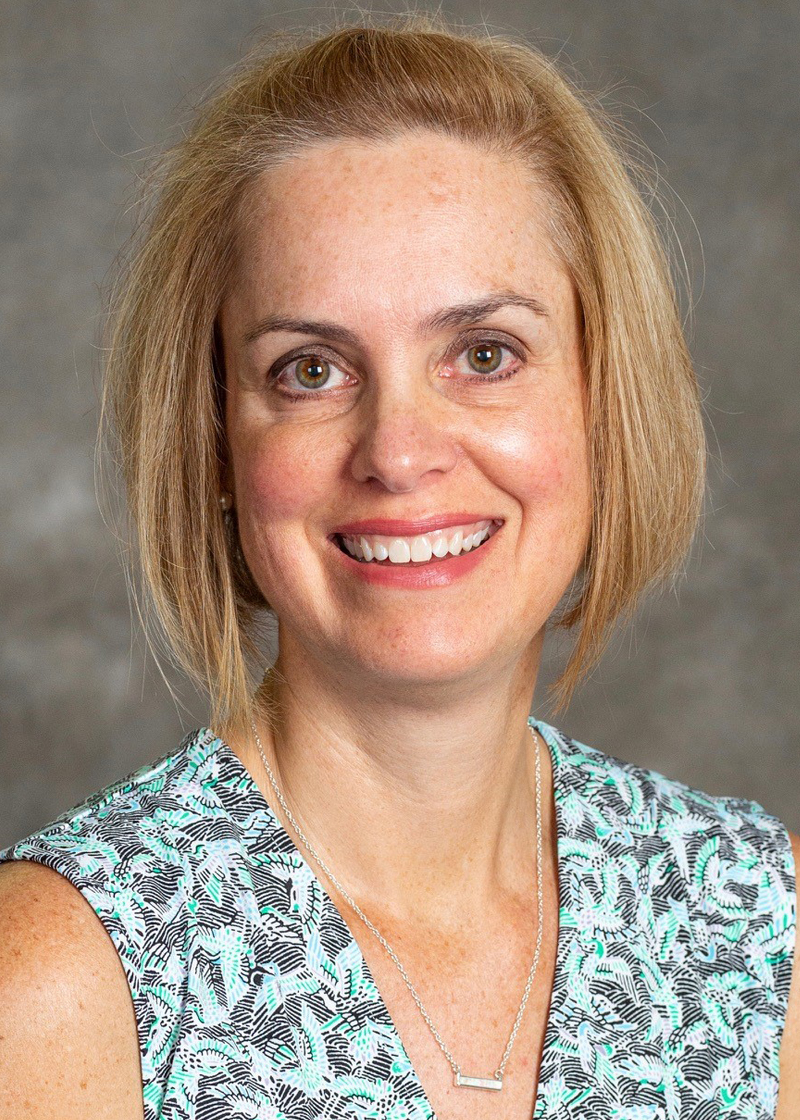A Decade of Excellence: Duke School of Nursing’s HIV Specialty Certificate
As the Duke School of Nursing celebrates the 10-year anniversary of its HIV Specialty Certificate, specialty director Kara McGee reflects on the profound impact the program has had.

In 2014 the Duke University School of Nursing launched its HIV Specialty Certificate to address the critical shortage of skilled healthcare providers in the field of HIV treatment and prevention. Since then, the certificate has been a beacon of hope and a testament to Duke’s commitment to advanced nursing education and patient care.
The HIV epidemic, once a harrowing diagnosis, has transformed significantly over the past four decades. Advances in diagnosis and treatment have turned what was once a universally fatal disease into a manageable chronic health condition. People with HIV now enjoy longer, healthier lives, and their primary healthcare needs are increasingly similar to those without HIV. However, as the first generation of healthcare providers dedicated to HIV care began to retire, a gap in the workforce emerged. Duke’s HIV Specialty Certificate was established to fill this void, equipping new generations of Nurse Practitioners with the expertise needed to provide comprehensive, patient-centered HIV primary care. It remains the only such certificate of its kind in the United States.
The program is unique in its approach, combining didactic instruction with practical experience. Students engage in 168 hours of clinical practicum under the mentorship of experienced HIV primary care clinicians. This hands-on training is crucial, as it allows students to manage the primary healthcare needs of adolescents and adults living with HIV across various outpatient clinical settings.
Specialty Director Kara McGee, DMS, MSPH, PA-C, AAHIVS reflected on how the program has morphed to meet new challenges since its inception. “The program has evolved to assure that graduates can meet the medical needs of people with HIV in the US,” McGee explains. “For example, the population of people with HIV in the US is aging and people with HIV are living normal life expectancies. Therefore, the program has evolved to include more content on caring for older adults with HIV.”
“In addition,” she continues, “in the early years of the program, HIV prevention science was changing rapidly so the curriculum was updated to include biomedical approaches to HIV prevention known as PrEP (preexposure prophylaxis). It was clear from the beginning as we were building the curriculum that it was important to include not only content on medical management of HIV but also content on the complex psychosocial, political, legal, and ethical aspects associated with HIV prevention, care, and treatment.”
Over the past decade, graduates from the Duke School of Nursing’s HIV Specialty Certificate program have gone on to manage HIV care in diverse settings, including federally-qualified community health centers, Ryan White-funded HIV clinics, infectious disease specialty clinics, and academic medical centers. Their work has not only filled the workforce gap but has also contributed to the broader goals of the National HIV/AIDS Strategy, which aims to reduce new infections, increase access to care, and reduce HIV-related health disparities.
The program’s success is a reflection of the School of Nursing’s overarching mission: to advance health equity, promote clinical scholarship, and train new generations of nurse leaders and researchers. Asked to reflect on particular success stories, McGee (who notes that of the 60 graduates of the program so far more than half continue to work in HIV-related care) doesn’t point to one specific student, but rather the overall impact graduates have had.
“One thing that comes to mind is that often the students in the program will come work with me in my clinic settings as part of their training,” she says. “I’m always amazed at how grateful my patients are when I introduce a student who is learning to care for people with HIV – the patients talk about how we need more healthcare providers to care for them and always thank the student for learning about HIV and wanting to work in a settings that cares for people with HIV.”
Graduates of Duke School of Nursing’s HIV Specialty Certificate program have gone on to achieve remarkable success in various capacities, contributing significantly to the field of HIV care and research. Here are some inspiring examples:
- Clinical Leadership: One graduate has established an HIV clinic in Chicago, providing essential services to the local community and addressing the healthcare needs of those living with HIV.
- Academic Pursuits: Another alumnus is pursuing a PhD at John Hopkins University, focusing on research related to HIV prevention among Black women in the South, a demographic that is critically important in the fight against HIV.
- Youth Care Specialization: Some graduates have specialized in caring for adolescents living with and at risk for HIV, ensuring that the younger population receives the attention and care they need.
These success stories highlight the program’s effectiveness in preparing its graduates to tackle the challenges of HIV care and to make a positive impact on the lives of individuals and communities affected by HIV. The program’s comprehensive training and hands-on clinical experience have enabled its graduates to excel in their respective fields, whether it be in clinical practice, research, or public health initiatives.
The 10-year anniversary of the HIV Specialty Certificate is more than just a commemoration of a program’s longevity; it’s a celebration of the lives it has touched and the global health landscape it has helped to shape. The Duke School of Nursing’s commitment to excellence in HIV care education has indeed made a lasting impact, and its legacy will continue to inspire and empower healthcare providers for many years to come.
